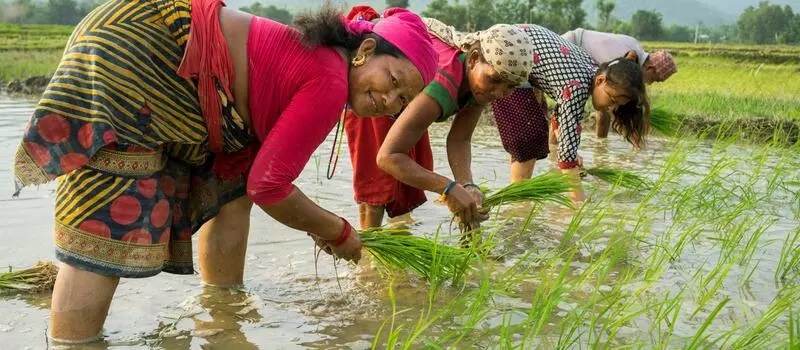Impact of COVID-19 Agriculture Extension Services: Implications for Female Farmers

USAID-supported studies in Nepal, conducted by the Gender, Climate Change and Nutrition Integration Initiative (GCAN) and the Cereal Systems Initiative for South Asia (CSISA), find that around one-third of farmers (34% male and 29% female) reported unavailability of their regular sources of agricultural extension information since COVID-19-related lockdown was first announced in the country. Prior to the lockdown, agricultural input retailers were the most important source of information for farmers, including both male and female farmers (Figure 1). More than twice the proportion of men relied on government extension agents or officials from Agriculture Knowledge Centers (AKC) compared to women. Such gender-based differences further reiterate that female farmers have limited access to formal sources of extension (AKC) compared to men. However, the lockdown — which is being eased considerably — has nonetheless resulted in changes with respect to information access for both male and female farmers (Figure 1). Information sources that involved in-person interactions, such as agricultural input dealers and meetings convened by self-help groups, cooperatives, and other farmer groups, have seen a decline during the lockdown. At the same time, an increasing proportion of farmers have been noted to depend on their own knowledge gained from experience (traditional knowledge) and information from family members or neighbors during this period. Overall, a considerably higher proportion of men, as compared to women, continue to utilize government sources, mass media, and field trainings for agricultural information, despite the lockdown.
Read the full article in Agrilinks.
Tags: agricultural extension, COVID-19, female farmers, Gender, Nepal
